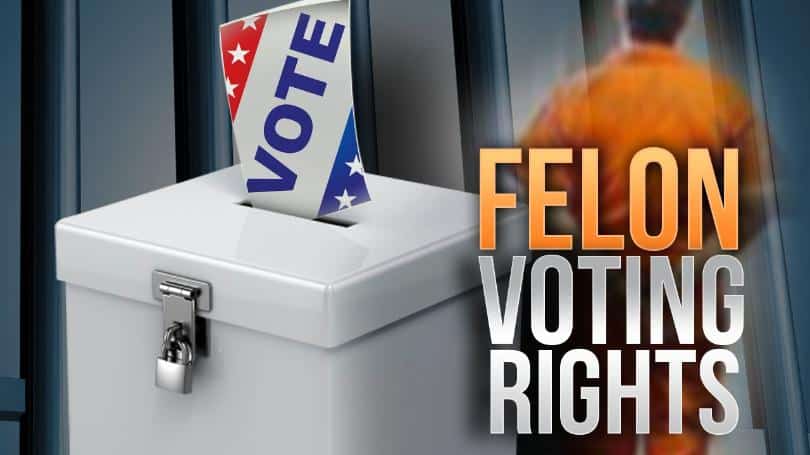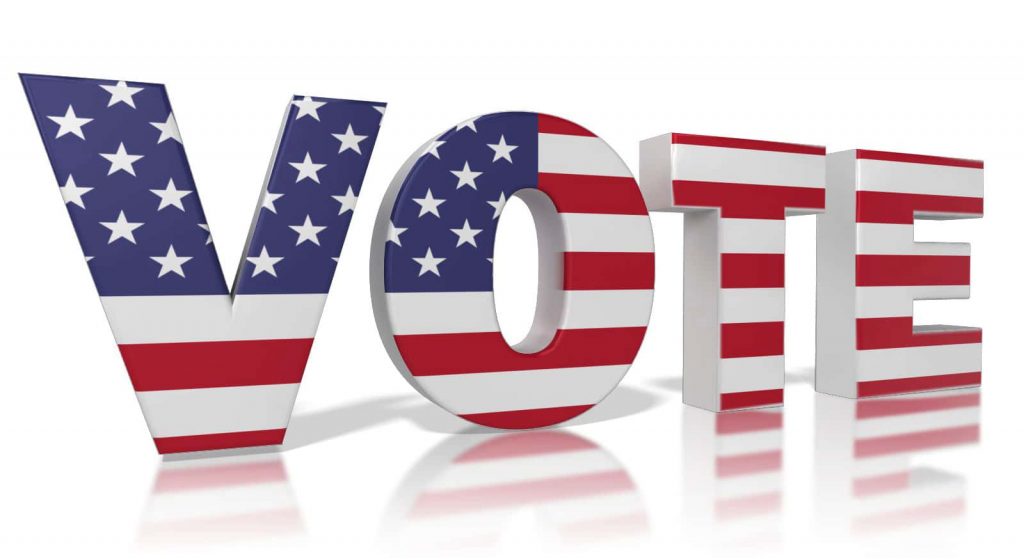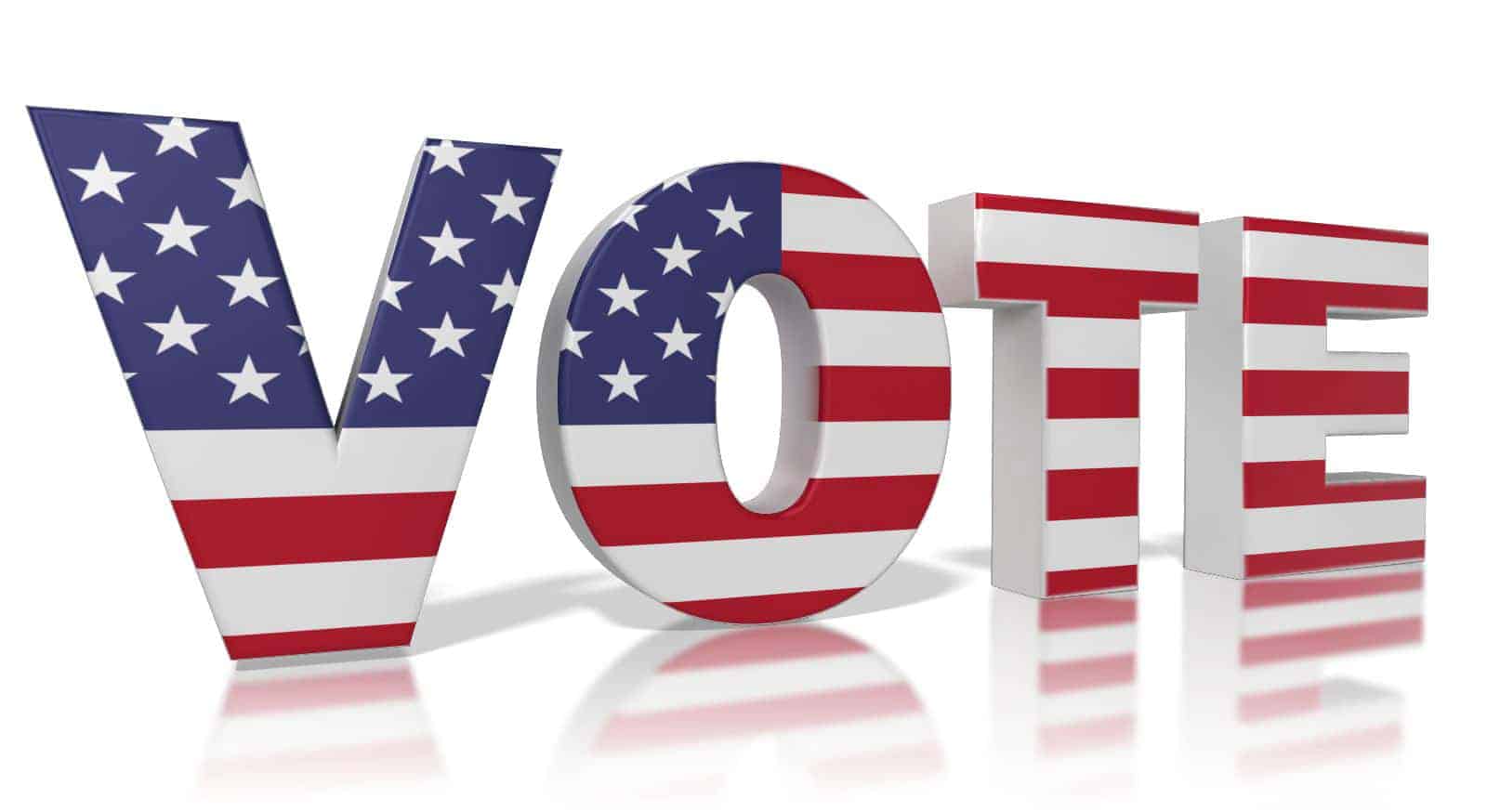The right to vote means different things to different countries – and states. To some governments, it is considered a fundamental human right. To others, it is merely a privilege as a driving license or a quiet neighborhood.
The world is yet to hold a standard view on this issue. In some territories, convicts are disenfranchised for life, while others allow felons to exercise their voting rights even in incarceration.
Statics say over 6.5 million Americans were disenfranchised on felony conviction grounds during the 2016 election, against 3.34 million recorded in 2006.
As disenfranchised felons increase, it is needful to critically examine and, where necessary, query America’s approach to criminal voting rights.
The issue of whether or not felons should vote has, again and again, become a critical topical issue among United States’ political stakeholders.
One among such heavy-weight debates is a recent one between Democratic presidential candidates – Bernie Sanders and Pete Buttigieg. While Sanders argues for the preservation of felons’ right to vote, Buttigieg argues against it.
But, why should felons be allowed to vote in [year]?

Many supporters of the protection of felons’ voting rights have argued that losing a fundamental human right – as voting – should not be a punishment for crime. Among many others, here are some key points in their argument:
Disenfranchisement may build a racial imbalance
Findings suggest that ethnic majorities are less likely to get jailed than their minority counterpart. For instance, Black-American males are five times more susceptible to being imprisoned, than whites.
Common logic says, in this case, disenfranchisement of incarcerated persons automatically destroys their ability to represent their political interests and express their opinion through the ballot. This, in turn, leads to a partial representation of public interest.
Owing to this fact, disenfranchisement of felons would effectively make the U.S voting Right ACT – which seeks to promote even ballot representation across all ethnic interests – Impotent.
Voting Restriction could hinder rehabilitation
Many former prisoners start a new life after incarceration. Many, having realized their mistakes, take advantage of any available opportunity to reconnect with society and live as everyone does. Truth is, these people may well become our neighbors tomorrow.
Considering this, you’d most likely hope your next-door ex-felon is properly rehabilitated and rejoined in society. In psychology, Strain theory posits that society’s pressure helps individuals develop certain generally-acceptable behaviors.
Where the expected behavior seems unattainable by the individual, the tendency to indulge in crime increases.
Stemming from this, felons’ disenfranchisement, obviously, seeks to isolate former convicts from societal norms further – creating room for them to return to their criminal past.
Voting Teaches Children
Many convicts have kids below 18. And, of course, these kids are yet ineligible to represent their political interests. Ideally, their parents should automatically become their chief advocates.
So, what happens when the parents have also stripped off their voting rights?
It means they cannot represent their political interest – let alone, that of their children.
The chances are that kids from parents with a criminal history are more susceptible to committing crimes, themselves.
Knowing that their parents participate in the voting process creates in them a positive mindset toward the political system and society at large.
Interestingly, the argument for the protection of felons’ right to vote comes with a counter-argument – that criminals should be punished by disenfranchisement.
Why shouldn’t felons be allowed to vote?

Here are common points raised by advocates for the disenfranchisement of felons:
Crime Hurts the Entire Society
Many argue that crimes committed by individuals impact the entire society. Indeed, crime isn’t cheap. It cost the government – of course, taxpayers – a fortune, yearly, to keep convicts in jail.
Also, the budget and time allocated by the courts for trials could have been channeled to more productive and beneficial ventures.
Even more, crime always leaves its victim in worse conditions – sometimes, for life.
With these negative inputs from convicts to society, it seems the advocates for felon disenfranchisement do have a valid point.
Indeed, those who contributed so much damage to the social order should not be allowed to participate in expressing opinions that protect the same order they work to shatter.
Hence, felons who are ready to violate social contracts with their criminal acts, when caught, should also be prepared to forfeit their rights to contribute to the development of social policies.
Felons Have Bad Records Already
While some punishments end with jail time, some bear the repercussions for life.
For instance, in several states in the U.S, sex offenders are barred from accessing defined proximity from playgrounds, schools, daycare centers, even after incarceration.
It is somewhat logical – a one-time-convict may never be trusted. Just as mental incompetents and minors cannot be trusted with their judgment, criminals should be disallowed too. If we should trust our leaders, we ought to trust who voted them into power also.
Jail Stripes off One Freedom
Mere threatening criminals with jail time may not be an effective deterrent to determined criminals. This thought is backed by the Marshal Project statistics, which says 45% of federal inmates are rearrested within five years after completing a sentence. More disturbing is the Bureau of Justice’s which places the figure at 77%, including State prisoners.
Thoughtfully, jail time is a period of freedom loss. This freedom loss, it is argued, should also rub off on the convicts’ democratic rights.
While most argue that loss of voting rights may not deter them from returning to their criminal acts, the societal tone it promotes is a greater concern: that criminality is intolerable and giving up their most fundamental right is a fair-enough punishment.
Wrap Up
In the words of Democratic Presidential Candidate, Bernie Sanders, “I think the right to vote is inherent to our democracy — yes, even for terrible people.”
Since they have been paying already for their crimes in jail, that “should not take away their inherent American right to participate in our democracy” Sander Said.
Should felons be stripped of one of the most fundamental rights of every American citizen?


I want to vote
Why should a convicted felon not be able to vote. Stripping a person that made the wrong choice at some point in there life should not be punished for their entire life. It is unconstitutional for the Government to strip a person of the right to be an American citizen . Their not able to vote, Travel outside of U.S bear arms , get meaningful employment, among other things. The government does require they pay the same taxes as all other citizens all while being treated worse than an illegal immigrant. Phuck you S.A.